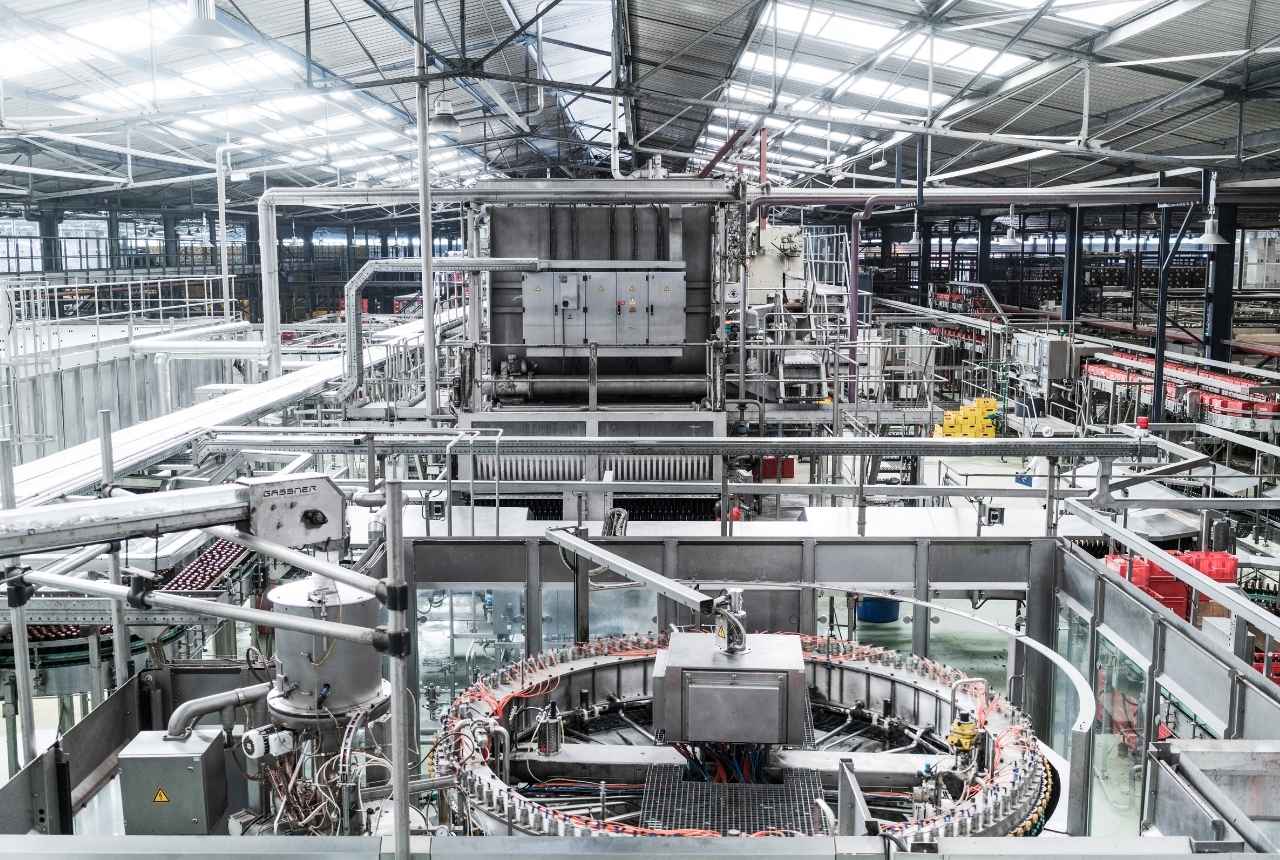An MES system (Manufacturing Execution System) is an excellent software that helps track documents and controls the manufacturing goods processes from raw materials to finished products. Offering a functional layer between ERP and process control systems, MES software offers decision-makers all the required data to make the production process more optimized and effective.
Irrespective of the manufacturing operation size, a manufacturing execution system MES can offer excellent productivity and profitability by generating more precise manufacturing process data. Industries like pharma, medical devices, defence, and food and beverage should adhere to traceability regulations. And it is precisely where the MES system comes to the scene. It benefits these industries while also making sure that proper actions are followed for building compliant products.
Also Read : The vital role of ERP in Manufacturing Industry
Prime Benefits of Manufacturing Execution System MES
Manufacturing execution systems can monitor a vast amount of data while generating real-time insights.
Some of the best benefits of MES include the following-
-
Enhanced quality control & uptime-
Since quality control data is sent in real-time, companies having an MES can instantly hold production once a single issue is rectified. It helps reduce rework, scrap, waste, etc. An MES system can produce realistic production schedules through a fine balance between material, equipment resources, and groups. It helps you integrate maintenance and scheduling to improve asset usage and product flow. MES offers excellent uptime and enhanced OEE (Overall Equipment Effectiveness).
-
Low Inventory-
Manufacturing execution systems constantly update inventory records with the new product to make your shipping, scheduling, and purchasing departments work efficiently. This way, you can easily track just-in-case inventory while saving considerable money on storage, transportation, and inventory monitoring.
-
Enhanced Genealogy and Product Tracking-
An MES manufacturing execution system tracks the production cycle from start to end. It also allows the grouping of final parts and batches with the respective manufacturing data. The information helps enhance regulatory compliance for manufacturers that could adhere to industry regulations.
Enterprise Resource Planning ERP & MES Integration
In today’s competitive environment, MES & ERP together can bring the greatest operational clarity. It is evident that if these systems operate single, the output might not come as expected.
Manufacturing execution systems majorly focus on tracking and managing various manufacturing operations as well as reporting on the production tasks in real-time and more instantly.
On the other hand, an ERP system can manage and create various plant schedules like delivery, material use, shipping, production, and collecting your company’s data.
Once these two systems are integrated well, they both can offer a great view of procurement, manufacturing logistics, supply chain management, finance, etc. However, combining that data might increase flexibility while offering robust data to enhance sales, manufacturing management, and asset usage prediction.
In short, we can say that an ERP system can check what products are to be manufactured, and an MES system can easily integrate data with the plant floor information to check how those products can be produced with higher profits and reduced waste.
Also Read : What is the difference between Manufacturing and Production?
Some of the Critical Features of MES
1. Real-time data collection and analysis: MES collects data from all production machines and equipment in real-time. This data is then analyzed to identify bottlenecks, inefficiencies, and quality issues.
2. Production scheduling and planning: MES provides visibility into the production process so that manufacturers can plan and schedule production accordingly.
3. Quality management: MES helps manufacturers monitor and control quality throughout production.
4. Machine connectivity: MES enables communication and collaboration between all stakeholders in the manufacturing process, from production planning to execution.
5. Data-driven decision-making: MES provides the data and visibility needed to make informed decisions that improve efficiency and quality.
MES is a powerful tool that can help manufacturers optimize their production process.
Trends of Manufacturing Execution Systems
MES systems have constantly been evolving to build a more connected and service-oriented platform. Advanced manufacturing devices and software have leveraged cloud connectivity for autonomous interaction. Also, the Industrial Internet of Things sensors and devices have been focusing on gathering and building data continuously. However, such real-time data sharing can continually enhance operations while making advanced workflows with customized products.
A Manufacturing execution system can aid manufacturers in leveraging this major trend in manufacturing execution systems evolution. So, your system can easily make a way forward to massive customization while fulfilling every demand for inexpensive and accurate customized products with excellent speed.
No doubt, personalization can make your manufacturing operations even more complex. But, advanced technologies can aid manufacturing systems in providing real-time insights. The top technologies, such as Artificial Intelligence, can enhance productivity while also reducing waste and effectively handling predictive maintenance.
By considering the capacities of machine learning technology, the manufacturing segment can quickly become effective and scalable. Along with Virtual Reality technology, manufacturers can precisely check high improvements and can check functions, too. Moreover, they can integrate AR solutions to minimize production time while also optimizing shop floor functions.
Also Read : 10 Manufacturing ERP Modules You should look for in an ERP System
Summary
The MES (manufacturing execution system) is vital to any modern manufacturing operation. By automating and streamlining production processes, MES can help manufacturers achieve greater efficiency and flexibility.
Looking to the future, MES will continue to play a vital role in manufacturing operations. With the ever-increasing demands of consumers and businesses, manufacturers will need to find ways to increase efficiency and optimize their production processes. MES will be a crucial part of achieving this goal.
By automating more manufacturing processes and collecting data throughout production, MES will help manufacturers make better decisions and improve their overall operations. In addition, MES will become more user-friendly and easier to implement, making it accessible to even more manufacturers.
Sage Software Solutions is a leading IT company with an array of advanced ERP Software solutions. Our proprietary products — Sage X3 and Sage 300 will help you cut your operational expenses, improve business productivity, increase operational efficiency, forge robust customer relationships, and strengthen association with vendors, suppliers, and distributors. So, if you are looking to reinforce your business fundamentals and emerge as an industry leader, then please schedule a call with one of our sales representatives.





